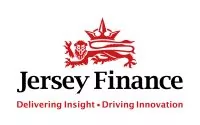Jersey is a leading centre of excellence for global and domestic philanthropic work and refined its Charities law in 2014 in order to continue to provide a robust and modern legal framework to support all types of charitable activity and structuring.
The Jersey legal and regulatory environment is flexible and sophisticated, catering for the needs of small local charities as well as global philanthropic enterprises, whilst at the same time ensuring they provide the appropriate and expected levels of governance and accountability.
This helps to ensure that whilst the public continues to be protected, charitable organisations can run as efficiently as possible in a structured governance environment and maximise their positive impact.
Jersey: A clear choice for philanthropy
Jersey is a world leader in providing attractive and flexible charitable and non-profit vehicles and structuring options for philanthropic purposes including:
- An established trusts and private wealth industry
- Flexible companies legislation and optionality including guarantee companies
- A variety of limited partnership structures
- Unincorporated and incorporated associations
- An innovative foundations law
The same benefits and expertise that Jersey offers to facilitate global capital flows in areas such as funds and private wealth, can and are being applied to not for profit enterprises and distributions, namely:
- Breadth and depth of service providers and advisers – There are more than 13,000 banking, accounting, legal, investment management, wealth management, administration and fund management advisers/employees in Jersey
- Experienced charitable, environmental and social impact investment community
- Innovative in the provision of philanthropic services
- A sophisticated product offering
- A robust and well regarded legal and regulatory regime and judicial system
- Economic and political stability
- Proximity and connectivity to the UK and Europe
Key features of the charities framework
Choice in relation to publicity
For those wishing to have no public profile for their philanthropy and not seeking public donations, they can utilise a trust with no public registration. For those aiming to raise funds from the public, different types of vehicle are available and registration under the Charities Law in the general section of the register will be necessary.
Register
In addition to the general section of the register of charities noted above, a restricted section is also available for structures that do not solicit donations from the public (i.e. for private wealth funded philanthropy) and may be of interest to those who would like to use a formal label of 'charity' but who are providing funding through their own money and want a lower public profile.
Oversight
A Charity Commissioner providing guidance, oversight and supervision of the sector.
Standards
A statutory charity test determined by the Charity Commissioner for all registered charities, which guarantees that a registered charity can only have charitable purposes (or purposes that are purely ancillary or incidental to any of its charitable purposes) and must provide public benefit.
Tax
A tax neutral environment in which to establish structures and an entitlement for registered charities to receive charitable tax reliefs (including on income tax, GST, stamp duty and income tax recovery on certain donations).
Modern framework
Registered charities have a modern definition of 'charitable purposes' to include the advancement of public participation in sport and environmental protection and improvement.
Standards
Statutory requirements for the governors of a charity (e.g. trustees, directors or foundation council members) to ensure the charity acts in accordance with the law, pursues the stated charitable purposes and delivers public benefit.
Certainty
Restrictions on the use of the term 'charity', with only registered charities (or certain overseas charities) being able to call themselves a 'charity'.
Public protection
Jersey also has a registration regime for Non-Profit Organisations which aims to protect the third sector from money laundering and criminal financing.
The content of this article is intended to provide a general guide to the subject matter. Specialist advice should be sought about your specific circumstances.


